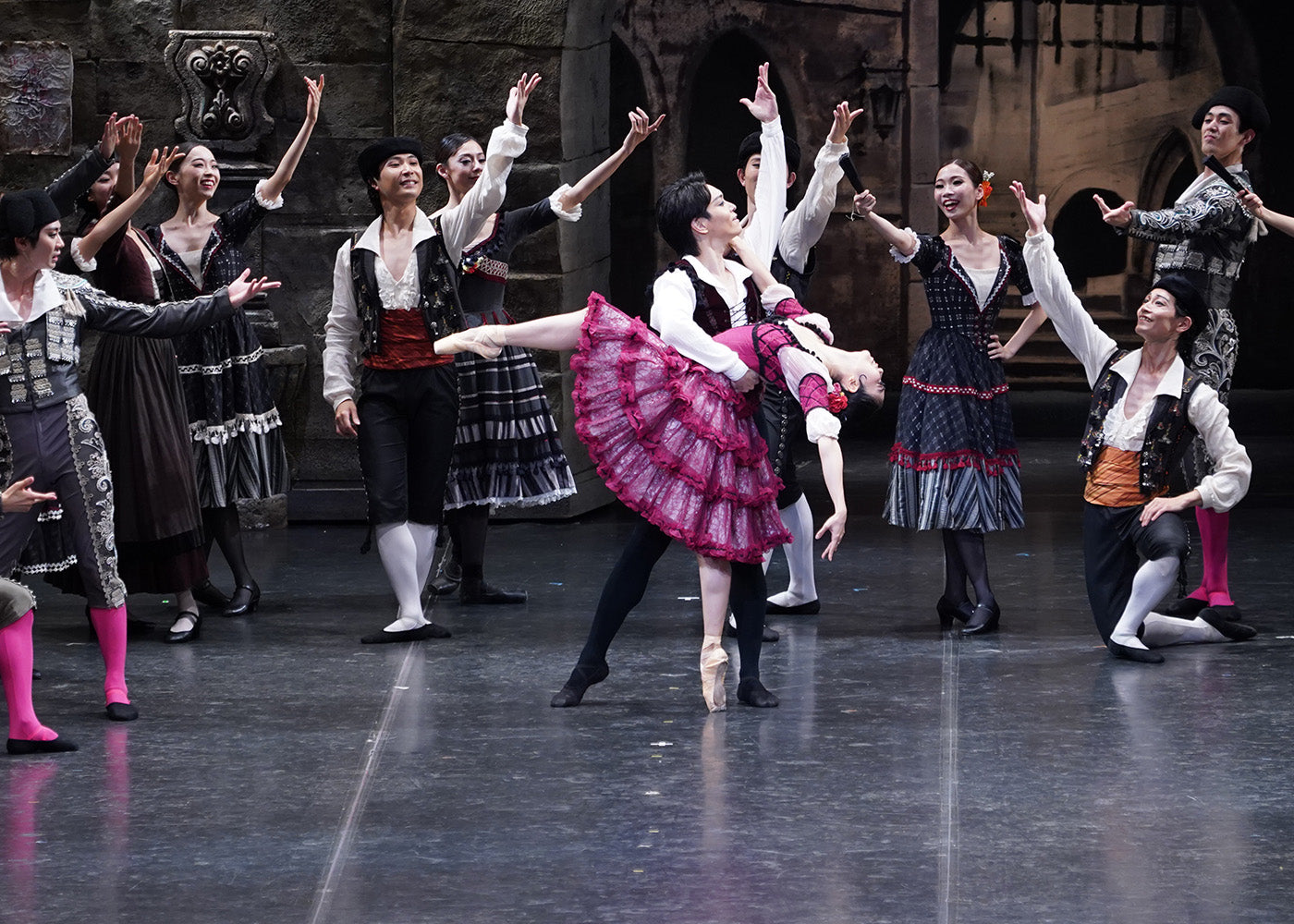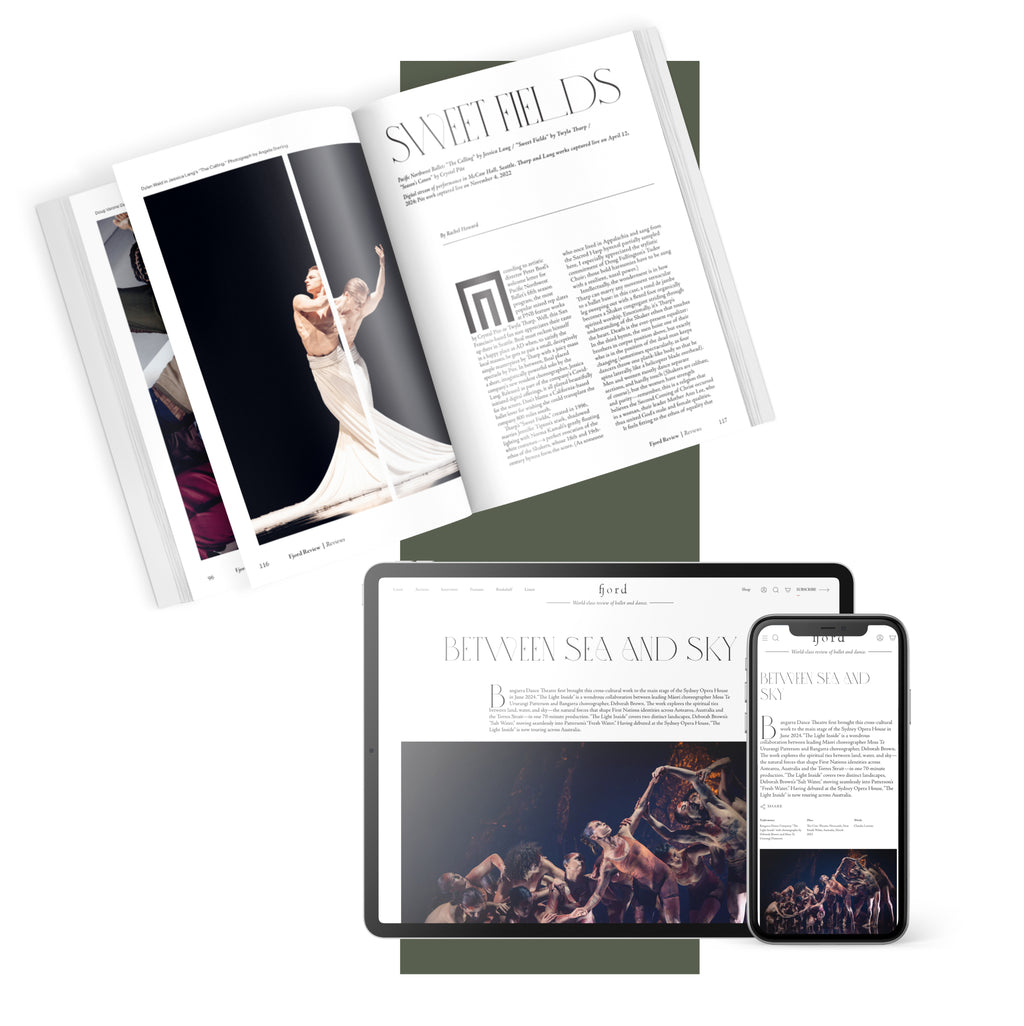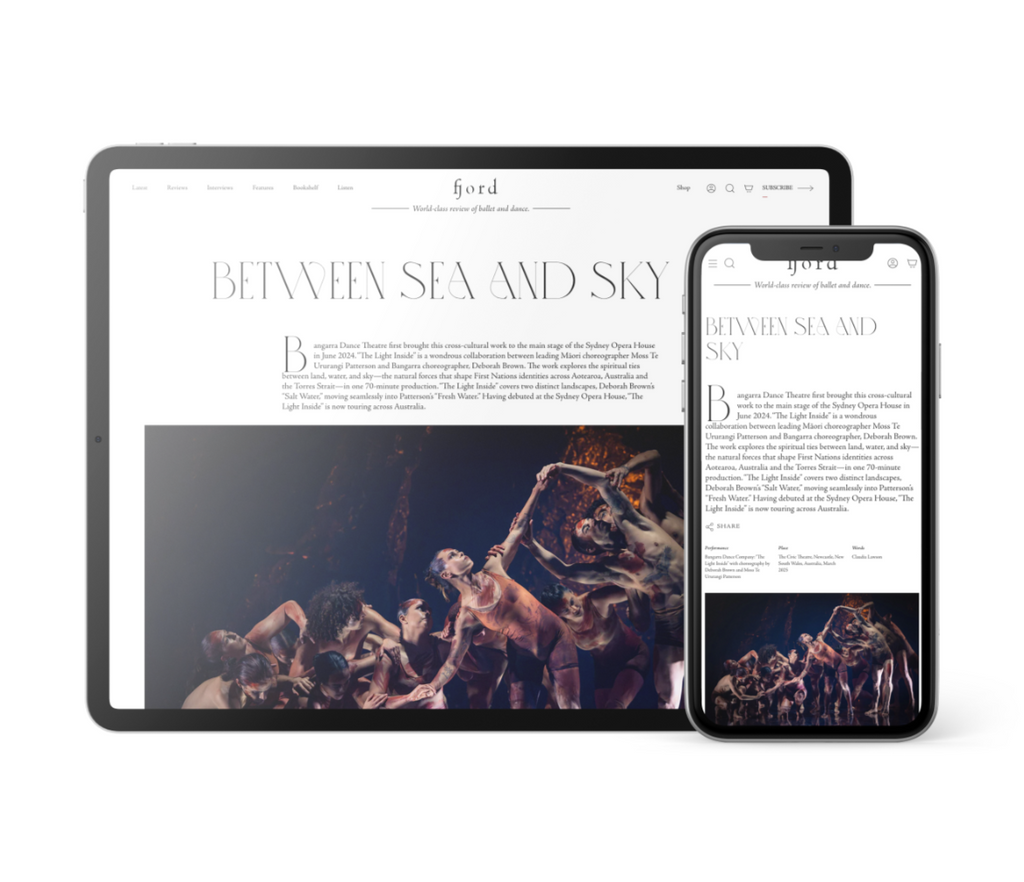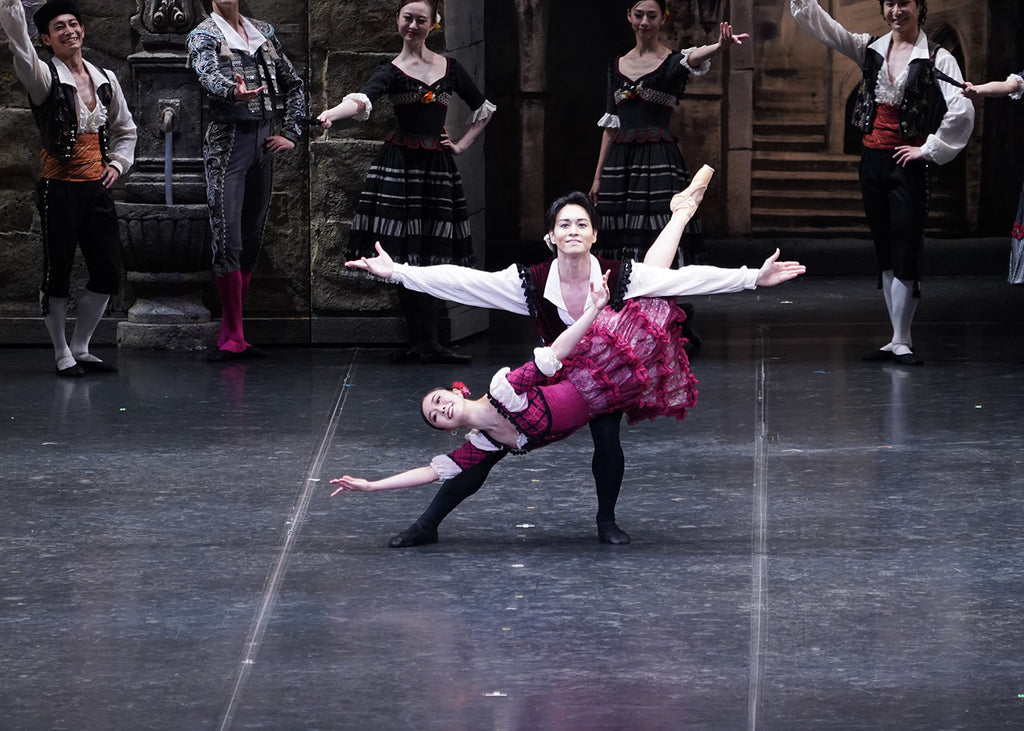Mishima’s Muse
Japan Society’s Yukio Mishima centennial series culminated with “Mishima’s Muse – Noh Theater,” which was actually three programs of traditional noh works that Japanese author Yukio Mishima adapted into modern plays.
Plus
World-class review of ballet and dance.
The curtain opens on a stark, grey stage. Cut off from the vitality of the world, an aged man, shabby and nondescript, exists only for his books. Inspired suddenly by a romantic vision, he forces a lazing servant to attend him and leaves behind this colorless prison, carrying his fantastical determination along with the dated accoutrements of a crusading knight.
Performance
Place
Words



“Uncommonly intelligent, substantial coverage.”
Your weekly source for world-class dance reviews, interviews, articles, and more.
Already a paid subscriber? Login

Japan Society’s Yukio Mishima centennial series culminated with “Mishima’s Muse – Noh Theater,” which was actually three programs of traditional noh works that Japanese author Yukio Mishima adapted into modern plays.
PlusThroughout the year, our critics attend hundreds of dance performances, whether onsite, outdoors, or on the proscenium stage, around the world.
PlusOn December 11th, the Alvin Ailey American Dance Theater presented two premieres and two dances that had premiered just a week prior.
PlusThe “Contrastes” evening is one of the Paris Opéra Ballet’s increasingly frequent ventures into non-classical choreographic territory.
Plus
comments